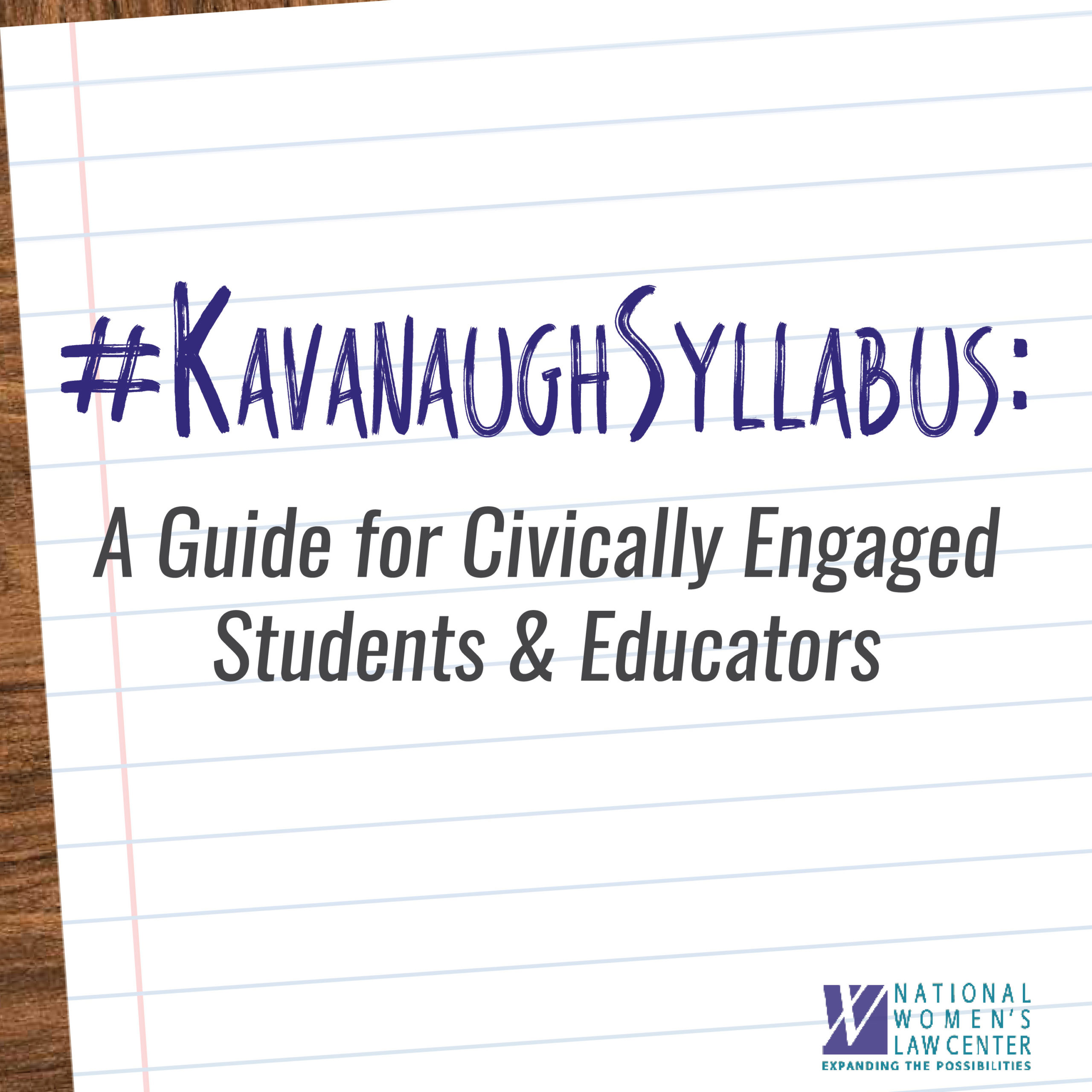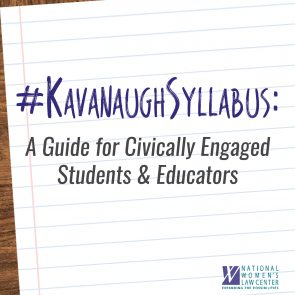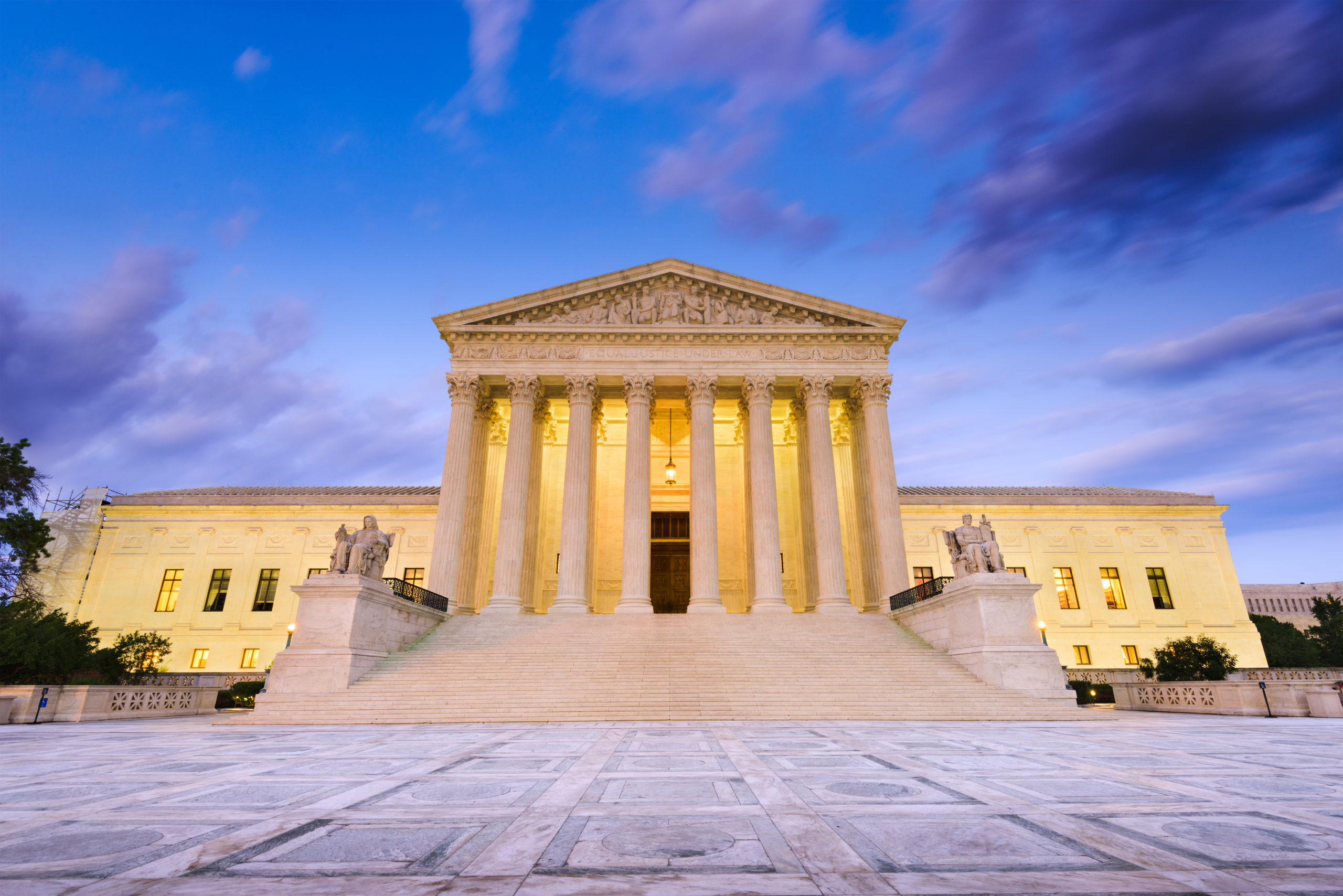The #KavanaughSyllabus: A Guide for Civically Engaged Students & Educators

 I. Introduction & Context
I. Introduction & Context
Nominating a justice to sit on the Supreme Court of the United States is one of the most influential decisions an American president gets to make, and vetting, confirming or rejecting Supreme Court nominees is one of the most important duties a United States senator performs. Supreme Court justices can sit on our highest court for the rest of their lives, which means the decisions they make impact our society for decades. The rights and freedoms people living in the United States do (or don’t) enjoy are heavily influenced by who sits on this court and the lower courts beneath it.
Throughout American history, Supreme Court justices have issued rulings upholding everything from slavery to racial segregation to internment camps, while other justices have issued rulings challenging all of these atrocities and more. The opinions of Supreme Court justices also affect our personal choices, from whether or not we can legally marry the people we love, to whether or not we have the freedom to decide if, how, or when to have children. That’s why it’s so critical that We, the People pay attention to who our leaders appoint to the Supreme Court, and learn as much as we can about how those justices think about our country’s laws and the people affected by those laws. While everyday citizens do not get to directly elect Supreme Court justices, citizens over the age of 18 do get to elect the presidents who nominate them, as well as the senators who vote to confirm or reject them. And all of us, regardless of age, can influence those elected officials by visiting, calling, writing, demonstrating, and otherwise letting them know how we feel about the choices they’ve made or plan to make.
Right now, D.C. Circuit Judge Brett Kavanaugh has been nominated by Donald Trump to replace recently retired justice Anthony Kennedy on the Supreme Court. But there are a few things that make Kavanaugh’s nomination very different from others in the past, including:
- Questions of legitimacy. Trump has been under a cloud of scandal since the very beginning of his presidency, with investigations into whether he colluded with a foreign government, Russia, and/or obstructed justice by firing FBI Director James Comey. Now, Trump has been implicated as a co-conspirator in the commission of a felony by his own former attorney. Not only is it questionable whether any nominee by a president in this situation can ever be legitimate, but it’s doubly so given that Trump’s personal and political conduct could come before the Supreme Court and Kavanaugh has opined that presidents should be exempt from lawsuits and investigations.
- Questions about the selection process. During the 2016 campaign, Donald Trump promised individuals and organizations supporting him that he would only select judicial nominees who oppose abortion rights and the Affordable Care Act. So while Supreme Court nominees typically say they will “respect precedent” when it comes to high-profile rulings like Roe v. Wade, Trump’s promise makes that kind of claim difficult to trust.
- Questions about transparency. Typically, senators and their staff members review extensive records from Supreme Court nominees’ careers to get a better understanding of how the nominee might make decisions during their lifetime appointment to the Court. But while Kavanaugh’s judicial opinions are already freely available for the public to see, many of the records from his earlier career as a Republican political operative aren’t. Senators have been given access to similar records for past nominees, yet nearly a million records from Kavanaugh’s time as White House staff secretary under former president George W. Bush haven’t been released to the public. Senators are particularly interested in these records because they could contain insights into Kavanaugh’s beliefs about several controversies that came up during that presidency — including the torture of people detained by our armed forces and our allies, government surveillance of American citizens without warrants, and opposition to marriage equality for same-sex couples.
- Questions about timing. Related to the issue of transparency is an issue of time. Because there are so many records to pull, officials at the National Archives have said it would take until late October to release complete records from Kavanaugh’s time as White House staff secretary. But the Archivist can only respond to requests made by the Chair of Congressional committees, and Senate Judiciary Chair Chuck Grassley (R-IA) hasn’t requested most of them. He has, however, scheduled Kavanaugh’s confirmation hearings to begin on September 4.
It’s not an ordinary confirmation process, by any means. Below are some recommended readings to learn more about who Brett Kavanaugh is, as well as ideas for activities to learn more about and/or get engaged with the confirmation process. These resources primarily come from publications written at an eighth-grade reading level or higher. Additionally, recognizing that many of the issues Supreme Court nominations raise can generate heated discussion, here’s a great resource on facilitating difficult conversations published by Vanderbilt University’s Center for Teaching. Finally, while we at the National Women’s Law Center are decidedly opposed to the confirmation of Brett Kavanaugh for a number of reasons, we invite anyone using this resource to explore these and other resources for themselves and to make up their own minds.
II. Readings on Brett Kavanaugh
-
Background:
- “Who is Brett Kavanaugh, President Trump’s Nominee for the Supreme Court?” (National Public Radio, July 9, 2018)
- Nominee Profile: Brett Kavanaugh (SCOTUSblog, June 28, 2018)
-
Record and Stances:
- Judicial Opinions of Judge Brett M. Kavanaugh (prepared by the Congressional Research Service for members & committees of Congress)
- Collected analyses of Kavanaugh’s known opinions and stances from SCOTUSblog
- “Brett Kavanaugh on the Issues: Abortion, Guns, Climate, and More” (The New York Times, July 10, 2018)
- “Abortion, race, gay rights, death penalty: Supreme Court nominee Brett Kavanaugh could make the difference” (USA Today, August 19, 2018)
- On reproductive rights and health care access:
- “The fate of the [Affordable Care Act] could turn on Judge Kavanaugh’s appointment” (Vox, July 23, 2018)
- “Brett Kavanaugh’s disturbing abortion history: He ruled against women [with disabilities] who were forced to abort” (Salon, August 20, 2018)
- On workers rights:
- “From arbitration to discrimination: 3 ways Trump’s Supreme Court pick could transform U.S. labor law” (Washington Post, reprinted by Chicago Tribune, July 10, 2018)
- “Trump Unites Unions Against ‘Anti-Worker’ Kavanaugh for Court” (Bloomberg Business News, July 11, 2018)
- On technology and privacy rights:
- “Kavanaugh on the Supreme Court could spell trouble for tech” (Wired Magazine, July 10, 2018)
- “How Kavanaugh could shape the coming ‘watershed’ moment for digital privacy” (CBS News, July 26, 2018)
- On gun policy:
- “Brett Kavanaugh, Trump’s Supreme Court pick, could have a major impact on gun laws, rejecting assault-weapon bans” (Los Angeles Times, July 16, 2018)
- “Kavanaugh Could Tip Supreme Court Against Gun Control Laws” (National Public Radio, July 23, 2018)
- On checks and balances on presidential power:
- “7 legal experts on how Kavanaugh views executive power — and what it could mean for [the Mueller investigation]” (Vox, July 11, 2018)
- “Supreme Court nominee Brett Kavanaugh’s views on executive power may stir controversy” (USA Today, July 12, 2018)
- “Kavanaugh papers offer new clues into his views on executive power” (The Washington Post, July 21, 2018)
III. Ideas for Learning Activities & Action Opportunities
- Hold mock confirmation hearings. The Center for Civic Education offers lots of resources for simulating Congressional hearings.
- Write letters to your senators. Because senators now receive a lot of emails and electronic petitions, many of them find handwritten messages with constituents’ questions and concerns especially meaningful. You can find their addresses here.
- Call your senators. Calling senators’ offices is another effective way to make your voice heard. The phones are answered by staff members who give daily reports on what constituents are most concerned about. You can find their phone numbers here and on their individual websites.
- Visit your senators. Even if you can’t make it all the way to Washington, D.C., senators return to their home states for district work periods, or recesses, multiple times a year. You can use our toolkit to learn how you can set up meetings with senators as well as other high-impact advocacy tactics.



